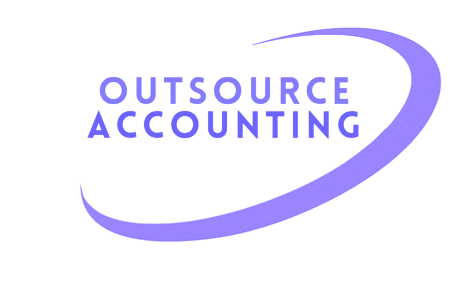What is a corporation tax?
Are you wondering how the UK government repairs the roads or finances the nation’s transportation networks, schools, universities, health, welfare, social services, and defence needs? Through corporation tax – Ta-dah! But what is a corporation tax? It’s a levy on the profits of businesses registered as corporations.
To make it easy to understand, consider corporation tax like income tax except for companies. Instead of taking a slice of your wages, corporation tax takes a chunk of a company’s earnings after their expenses are paid. This tax goes towards all public services mentioned above, from the NHS to schools.
The rate of corporation tax changes from time to time, but right now, in the UK (as of March 2024), the main corporation tax rate is set at a flat rate of 19% for profits exceeding £50,000. The good news is it may seem like a fixed cost, but there are various legitimate ways to reduce your corporation tax. Fancy a gander at them together, then?
Seven ways to reduce your corporation tax
Here are 7 effective strategies to help reduce your corporation tax bill.
Capitalise on allowances and reliefs.
The UK government offers a range of tax allowances and reliefs that can help reduce corporation tax bills significantly. Consider the following key options to claim capital allowances:
Annual investment allowance (AIA)
The annual investment allowances allow you to claim immediate tax relief on qualifying business assets like plant and machinery, up to a current limit of £1 million. Interesting? Here’s more.
Research and development (R&D) tax relief
If your company invests in qualifying R&D activities, you can claim research and development tax relief of up to 130% of your expenditure.
Capital allowances
These allowances let you claim tax relief for the wear and tear of certain business assets, spreading the cost over their useful life.
Optimise business expenses
Do you have legitimate, wholly and exclusively incurred business expenses? If yes, they can be deducted from your taxable profits. Some of these include:
Staff costs
Salaries, bonuses, and pension contributions made to employees can be deducted.
Marketing and advertising costs
Reasonable marketing and advertising expenses incurred for business purposes are deductible.
Professional fees
Fees paid to accountants, solicitors, and other professionals for legitimate business purposes can be deducted.
Claim tax relief on pension contributions
Offering a strong pension plan shows your employees you care about their future and makes good business sense. By contributing to a registered plan on their behalf, you can benefit from tax relief, making it a win-win for your company and your workforce.
Maximise Tax-Efficient Remuneration
Striking the right balance between paying yourself a fair wage and minimising personal income tax burden can be a bit of a fiddle. While securing a competitive salary is important, it’s worth exploring a mix of salary and dividends to optimise your tax situation. Each method has different tax implications, so choosing the right blend is crucial.
Making up for losses
Unexpected losses can throw a wrench in any business plan. However, offsetting losses allows you to claim relief on your corporation tax bill by utilising losses incurred in previous years. It’s a second chance to recoup what you’ve lost, reducing the immediate tax burden and aiding recovery.
While claiming requires proof of loss (invoices, statements), businesses can deduct a portion (19%) of their past losses from their current taxable profits, effectively lowering their corporation tax bill for up to nine years. Though it applies only to trading losses and not group tax relief, offsetting losses can help reduce corporation tax effectively. It’s worth exploring this option with your expert accountant to see if it can help your company weather the storm and grow stronger.
Double taxation agreements for UK businesses
Expanding your UK business overseas can bring exciting opportunities, but getting around the complexities of international tax can feel like going round in circles. Double Taxation Agreements (DTAs) act as your compass, helping you steer clear of the pitfalls of double taxation.
Imagine your company finds itself in a unique tax situation – residing in the UK and another country or generating taxable income abroad while firmly rooted in the UK. DTAs become your shield in these scenarios, protecting you from the double whammy of being taxed twice on the same income or capital gains.
Think of DTAs as international treaties forged between the UK and other countries designed to eliminate or significantly reduce this double taxation burden. Each agreement is unique, offering specific benefits, but generally falls into two main categories:
Claiming a tax rebate
If you’ve already paid taxes in both countries, DTAs can pave the way for a tax refund from one of the involved nations, correcting the double taxation issue.
Securing upfront tax relief
Even better, some DTAs allow for upfront tax relief, either in full or partially, preventing you from being taxed twice in the first place. This translates to smoother cash flow and a clearer picture of your tax obligations.
Seek expert help
Getting about the complications of corporation tax can often be mind-boggling, but consulting with a qualified accountant can help you develop appropriate strategies for your business to grow. Let us help you with your corporation tax difficulties while ensuring compliance with HMRC and all regulations.
Things to remember while reducing your corporation tax
It is essential to remember the following points while planning to reduce your corporation tax.
Planning is key
Start planning your tax strategy early in the tax year to make informed decisions and maximise potential benefits.
Stay updated
Corporation tax rules and regulations can change, so staying informed about the latest updates is crucial. Once you plan to implement the above strategies, learn how to pay corporation tax online accurately to avoid errors and other complications.
Alright, there you have it! If implemented and seeking expert help, these seven strategies can help you reduce corporation tax bills. Don’t delay, have your say! Contact us today.






